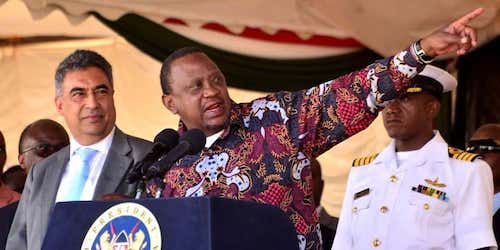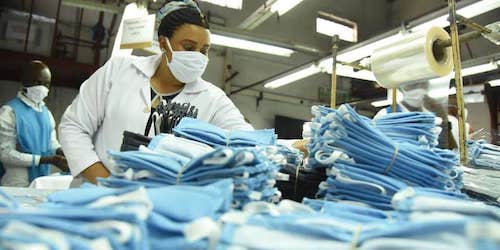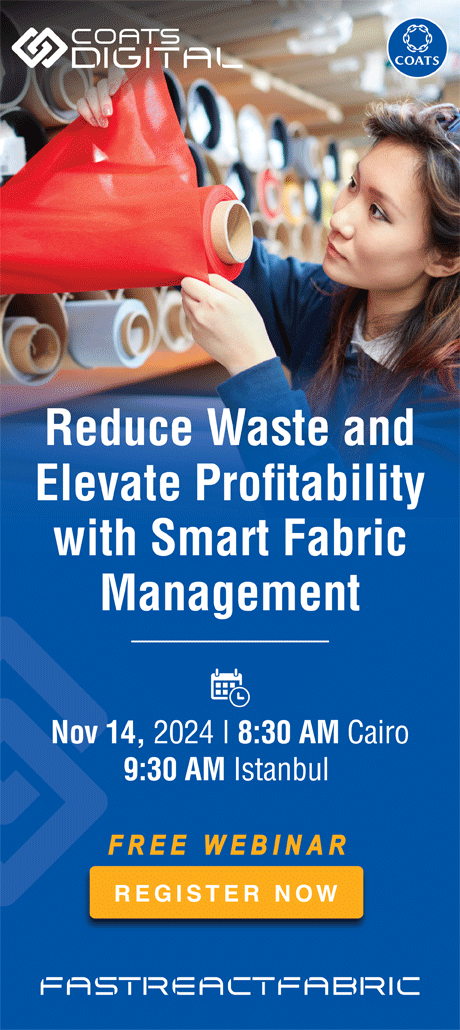As soon as Kenya reported its first case of the Covid-19 disease in March, one company saw an opportunity in the danger.
Bedi Investments, a fabric manufacturer in Nakuru County, quickly repurposed its lines to produce Personal Protective Equipment (PPE).
The firm’s textile mill manufactures synthetic yarns, woven fabrics and apparel for export to the US, Europe and other African countries.
Mr Jaswinder Bedi, its chief executive, told Powering SMEs that as the country stood helpless in the middle of the health crisis that was decimating the world’s economy, he received a rare call from President Uhuru Kenyatta. Shortly after, Health Cabinet Secretary Mutahi Kagwe also followed up with another call.
The President and the CS had an urgent message for him that required immediate intervention — the country needed a local solution to deal with the pandemic.
At the time, every country of the world was struggling to deal with the pandemic, meaning that importation of PPE was not a feasible idea. This, therefore, required a local solution that would intervene to check the spread of the disease.
Covid-19 infections
At this time, the number of infections in health care workers was increasing at an alarming rate and able countries were not ready to export as they focused on dealing with their internal situations.
Mr Bedi had to act. And fast. That is when he retooled his production line.
“We re-engineered the factory to purposely produce PPE. I looked at all the locally available materials, the machines and reinvented ourselves and our minds so that we could carter for the demand,” Mr Bedi says.

When Mr Bedi took over the company from his father in 1980, its line of production was majorly fabric for export to the US and the UK. However, the business was brought to a standstill when the virus hit the world.
He exported 80 per cent of his produce leaving the remaining 20 per cent for the local market. However, this has since changed. The factory is now doing 80 per cent for the local market, hoping that things will change and get back to normal.
“Under the Africa Growth and Opportunity Act (Agoa), I was exporting 80 per cent of our products to the outside world, but this has since changed. We needed to look at new ventures to keep our people in employment,” he says.
In 2008, the company’s export line grew exponentially and it was exporting 100,000 pairs of trousers per month to a US-based company. It is among six listed manufacturers by Kenya Manufacturers Association who have attained national and international quality standards for the medical-grade PPE.
With the restriction of exports and countries wanting to fulfil their demands for the commodities, the factory is currently supplying Kenya and Uganda with PPE, however, it is in talks with the African Union and West Africa to export as well.

In Kenya, the factory produces 25,000 sets of PPE in a day while in Uganda, it makes 300,000 face masks a day. It recently made a Sh4 billion ($40 million) investment in Uganda, acquiring two milling factories and signing up 6,000 cotton farmers.
Towards the school season, the factory is looking for an opportunity to make face masks for school-going children.
Frontline workers
“It has been a journey. I am very happy to say that as a company, we looked and ensured that our frontline workers are protected,” he said.
Apart from the PPE, the factory has the capacity of producing 10,000 fabrics a day and also deals in school fabric and suits. It also supplies police uniforms in 11 countries in Africa.
It is also a major supplier of uniforms to government institutions and the military. The firm also supplies shell petrol uniforms in Africa.
“We are also in the African wear space in one of the leading online shops, Zuri, in the US and I must say that currently, online shopping is doing better than other sectors,” he says.
The factory employed 850 people before covid-19 and with the virus, it increased the number of employees at its Nakuru factory by 300. Currently, the factory has 1,150 employees. This is in addition to 600 workers in the Nairobi-based Fine Spinners Factory.
“By the grace of God, this is one of the few companies that did not have a discussion with our unions on compensation reduction which a lot of companies have done,” he says.

Kemsa scandal
However, with a scandal erupting at the Kenya Medical Supplies Authority (Kemsa), the government is not placing any PPE orders. He says his stocks are now lying idle.
“The stocks should be supplied to various entities. They do no good to anybody here at the factory, but this will not happen until the Kemsa issue is resolved. We are affected and hoping that this will end soon,” he adds.
He appealed to the government to continue supporting local manufacturers to make change in the country and at the same time creating employment opportunities for the youths.
“They have been supportive, but if we strictly go the local manufacturing way, we are going to save a lot of money that we incur from importation of these products,” Mr Bedi says.
He plans to build a pan-African business with up to 10 factories in seven countries on the continent by 2025 when he hopes the firm will be listed on the London Stock Exchange.




















